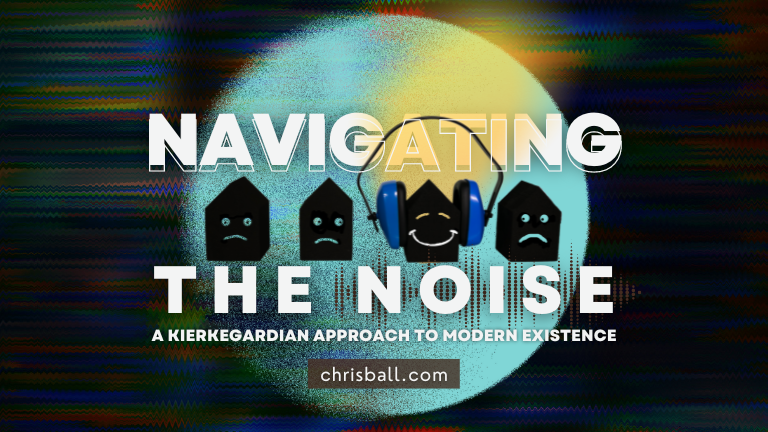As you may remember from my previous blog posts, I am currently re-translating Soren Kierkegaard’s profound book, “The Sickness Unto Death”. So, what does a 19th-century philosopher know about 21st-century despair? I was totally surprised by how relevant his writings are, even from 200 years ago.
In an era where our lives are increasingly dominated by the immediate gratification of social media and constant stimuli, the words of Søren Kierkegaard, penned in the 19th century, resonate with surprising urgency. In “The Sickness Unto Death,” Kierkegaard delves into the nature of despair, distinguishing between its superficial and profound forms. This distinction offers a compelling lens through which we can examine our modern existence, especially in how we interact with the world and perceive our own happiness.
Kierkegaard suggests that a life lived without deep reflection or thought, driven by spontaneity and simplicity, is vulnerable to despair. This vulnerability stems from the reliance on external circumstances for happiness. In today’s context, this can be likened to the pursuit of likes, shares, and followers on social media platforms. The external validation we seek and often depend upon can be abruptly withdrawn, leaving us in a state Kierkegaard describes as “unhappy” or in “despair.” This despair, however, is not true despair according to Kierkegaard; it’s a misinterpretation, focusing on the loss of worldly things rather than the eternal.
True despair, as Kierkegaard outlines, is not merely about losing something in the world—whether it’s a job, a relationship, or social status (which today might include our online persona or digital clout). It’s about losing something much more profound: the eternal aspect of ourselves, our very selves. The crux of Kierkegaard’s argument is that many of us don’t even realise this deeper despair because we are too caught up in the external, fleeting aspects of life.
In our contemporary landscape, this message is particularly poignant. Social media, for all its benefits in connecting us and providing platforms for expression, also has the potential to lead us away from self-reflection and deeper understanding. We become so entangled in the immediate feedback loop of digital interaction that the absence of it can throw us into the kind of despair Kierkegaard describes. Yet, this despair is often a confused state, misidentified as being caused by the lack of external validation, when in reality, it signals a deeper existential crisis—the disconnection from our true selves.
What Kierkegaard invites us to consider is the importance of introspection and the pursuit of an authentic self that is not defined by external accolades or the fluctuating tides of fortune. He suggests that true happiness and resilience lie in understanding and developing our inner selves, our relationship with the eternal, which no external change can take away.
In a world awash with immediate stimuli and the constant call for our attention, Kierkegaard’s insights are a clarion call to seek a deeper, more meaningful existence. They urge us to turn away from the ephemeral and to face the more challenging, yet ultimately more rewarding, task of self-discovery and genuine engagement with our existential questions.
Let this be an invitation to pause and reflect amidst the digital chaos: to find moments of silence in which we can hear our own thoughts, to engage with our lives not just as participants in a digital spectacle but as seekers of deeper truths. In doing so, we may find that the despair we feared was not an end but a beginning—a signpost directing us towards a more profound engagement with life and our place within it.
